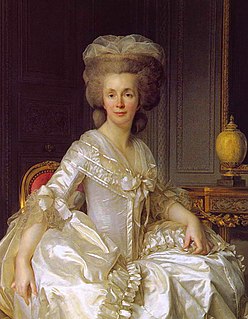A Quote by Alexis de Tocqueville
Nature secretly avenges herself for the constraint imposed upon her by the laws of man.
Related Quotes
Virtue and vice suppose the freedom to choose between good and evil; but what can be the morals of a woman who is not even in possession of herself, who has nothing of her own, and who all her life has been trained to extricate herself from the arbitrary by ruse, from constraint by using her charms?... As long as she is subject to man's yoke or to prejudice, as long as she receives no professional education, as long as she is deprived of her civil rights, there can be no moral law for her!
Does man's freedom consist in revolting against all laws? We say no, in so far as laws are natural, economic, and social laws, not authoritatively imposed but inherent in things, in relations, in situations, the natural development of which is expressed by those laws. We say YES if they are political and juridical laws, imposed upon men by men.
English literature, from the days of the minstrels to the Lake Poets,--Chaucer and Spenser and Milton, and even Shakespeare, included,--breathes no quite fresh and, in this sense, wild strain. It is an essentially tame and civilized literature, reflecting Greece and Rome. Her wildness is a greenwood, her wild man a Robin Hood. There is plenty of genial love of Nature, but not so much of Nature herself. Her chronicles inform us when her wild animals, but not the wild man in her, became extinct.
Men and women are made for each other, but their mutual dependence differs in degrees; man is dependent on woman through his desires; woman is dependent on man through her desires and also through her needs; he could do without her better than she can do without him. She cannot fulfill her purpose in life without his aid, without his goodwill, without his respect.....Nature herself has decreed that woman, both for herself and her children, should be at the mercy of man s judgment.
For the religious, passivism [i.e., objects are obedient to the laws of nature] provides a clear role of God as the author of the laws of nature. If the laws of nature are God's commands for an essentially passive world ..., God also has the power to suspend the laws of nature, and so perform miracles.
The Laws of Nature are just, but terrible. There is no weak mercy in them. Cause and consequence are inseparable and inevitable. The elements have no forbearance. The fire burns, the water drowns, the air consumes, the earth buries. And perhaps it would be well for our race if the punishment of crimes against the Laws of Man were as inevitable as the punishment of crimes against the Laws of Nature -were Man as unerring in his judgments as Nature.







































